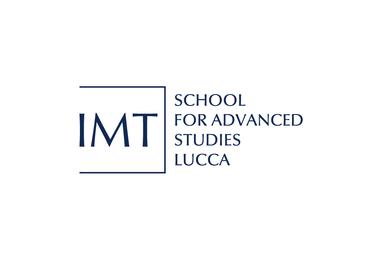IMT School for Advanced Studies Lucca

IMT in a Nutshell
IMT School for Advanced Studies Lucca is a research university within the Italian public higher education system. As an institute for advanced studies, IMT hosts researchers who carry out methodological research, held to high scientific standards, leading to the development of new knowledge. IMT's specially designed campus fosters the continual presence of visiting scholars that contribute to creating a stimulating and intellectually lively environment. At the same time, IMT is also an institute of technology where numerous research projects are undertaken to apply cutting-edge scientific results to solve problems of economic, industrial, and societal interest. The pillars of the School's research model are its thematic research units, highly specialized in a specific field, that often cooperate in interdisciplinary projects. IMT's institutional role is also that of a graduate schoolwhere knowledge is transmitted to young PhD students. The multidisciplinary PhD program of IMT, organized into thematic curricula, promotes the full integration of research and education. An appropriate balance of methodological rigor and applicative relevance is emphasized to best prepare IMT's PhDs in finding key appointments in research centers, companies, and public institutions.
Research Units
Research at IMT is currently organized in the 10 thematic research units listed below, each one carrying out cutting-edge research projects in specific fields, which encourages dialogue and collaboration within the context of multidisciplinary projects. Every researcher and student at IMT is affiliated with one of the units, one of which is directed by an IMT permanent faculty member.
AXES - Laboratory for the Analysis of Complex Economic Systems
A multidisciplinary research unit of economists, management scientists, statistical physicists, mathematicians, and probability theorists focusing on analyzing, through empirical and simulative investigations, the evolution of complex economic, industrial, and financial systems at different levels of aggregation. Specific themes include the long-term sustainability of welfare systems and evolution of the biopharmaceutical industry.
DYSCO - Dynamical Systems, Control, and Optimization
A research unit of control engineers and applied mathematicians researching new methodologies, algorithms, and tools for designing feedback control strategies based on dynamical models and numerical optimization that make systems react autonomously and optimally to changes of the environment they are operating in. Their research is applied to areas such as automotive, aerospace, smart grid and energy market, process control, water networks, transportation and logistics, and financial engineering.
ICES - Institutional Change, Economics, Society
Composed of economists that analyze the determinates and the evolution over time of economic, political, institutional and cultural phenomena by using analytical and empirical tools.
LIME - Laboratory of Innovation Management and Economics
The unit is home to economists focused on innovation and entrepreneurship, informed by organizational economics, and predominantly based on a unique collection of empirical datasets of scientific publications, patents, R&D projects, collaborations, communities and careers.
LYNX - Center for the interdisciplinary Analysis of Images
This unit is comprised of archaeologists and art historians who specialize in the study of not only the mechanisms surrounding the creation of images, but also their enjoyment and use.
MUSAM - Multi-scale Analysis of Materials
The unit is composed of engineers, physicists and mathematicians, and aims at studying the deformation, fracture, fatigue, contact and the structural integrity of heterogeneous materials and structures with multi-scale and multi-physics computational and experimental methods.
NETWORKS - Complex Networks
Composed of statistical physicists active in complex network theory, the unit employs tools of graph theory, database analysis and statistical physics to provide a novel universal way of looking at many different natural and technological phenomena, with particular emphasis on the natural sciences (physics, chemistry, physiology and botany).
POLHIST - Political History
The research unit brings together political historians active in confronting the historical study of 19th and 20th century politics, political institutions, political movements, political ideas, cultures and mentalities with the most advanced and up-to-date theoretical and methodological instruments.
PRIAn - Pattern Recognition and Image Analysis
The unit focuses on image analysis algorithms for identifying patterns in multidimensional and multimodal imaging data arising in the natural and life sciences. The unit is composed of researches with an engineering background in computer vision, machine learning, and data mining who analyze large sets of data in a distributed environment for the purpose of computer aided diagnosis in medicine and phenotyping applications.
SysMA - System Modelling and Analysis
The unit is formed by computer scientists with the challenge of supporting the development of high-quality, correct-by-construction software and systems, featuring predictability, efficiency, usability, re-usability, maintainability and modularity, that are essential in contemporary information technology systems (such as embedded systems or service oriented architectures).